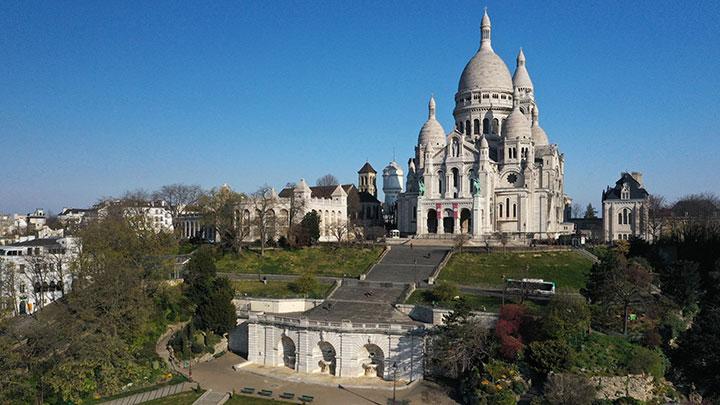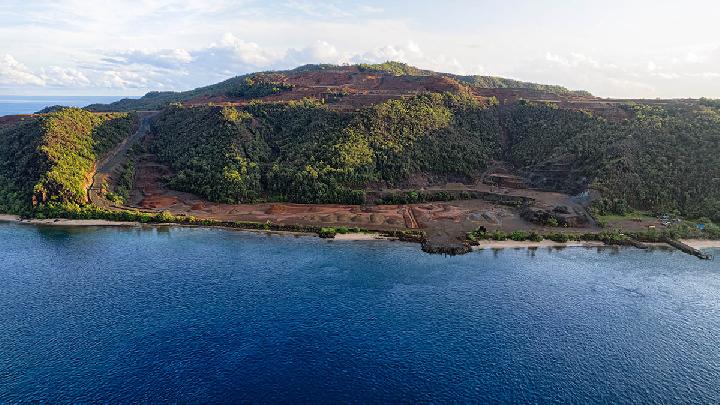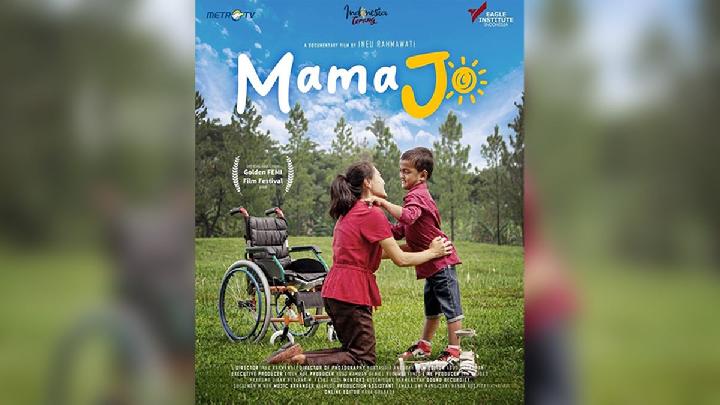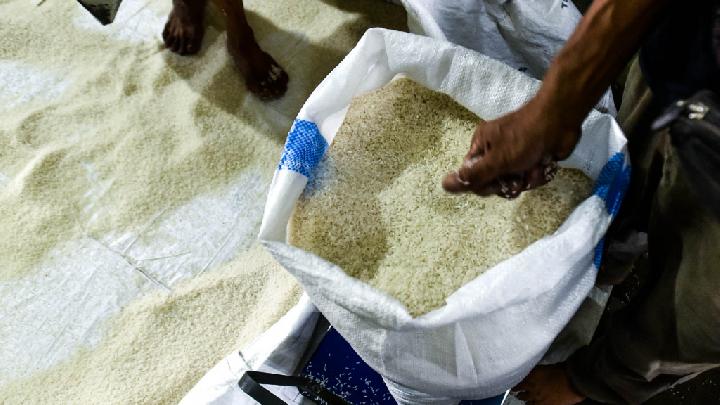TEMPO.CO, Jakarta - Indonesia is taking a bold leap forward to safeguard its rich biodiversity and natural resources through the endorsement received during the recent biannual Global Environment Facility (GEF) Council Meeting.
The GEF has officially endorsed funding for the archipelago's latest conservation initiatives: "Excelling Protected Area Management Effectiveness for Biodiversity Conservation through Landscape-Based Approach" (ENABLE) and "Spatial-based Natural Forest Planning and Governance for Robust Ecosystems" (SPARE).
This milestone signals a strategic shift in how Indonesia manages its natural resources and protected areas, moving beyond isolated conservation efforts toward inclusive, landscape-based, and spatially-informed approaches that benefit both people and nature.
These two projects are among several that will be funded through the GEF’s eighth funding replenishment period. Together, they reflect the United Nations Development Programme (UNDP)’s commitment under the UNDP Nature Pledge to support countries in achieving their agreed targets of the Kunming-Montreal Global Biodiversity Framework, aligned with the Sustainable Development Goals.
Spearheaded by the Indonesian Ministry of Forestry with the support of UNDP and the GEF, the projects aim to preserve high-conservation value landscapes in and around protected areas. They seek to address threats to Indonesia’s iconic species such as the Sumatran tiger, Sumatran rhinoceros, and Bornean orangutan, as well as remaining natural forests, from habitat fragmentation, deforestation, capacity limitations in protected area (PA) management, and unsustainable land use practices like mining and plantations.
ENABLE will pilot innovative landscape-based management models in three iconic national parks—Gunung Leuser, Sebangau, and Bogani Nani Wartabone National Parks—transforming them into Centers of Excellence (CoEs). These CoEs will drive innovation and inclusive capacity-building in landscape-based conservation, ecosystem restoration, spatial analysis, and adaptive management.
Best practices developed in these CoEs will be scaled across broader protected area networks in Sumatra, Kalimantan, and Sulawesi.
Meanwhile, the SPARE project will support the Ministry with forestry spatial planning and information for enhanced governance, decision-making, and protection of natural forests (high biodiversity/conservation value ecosystems) outside protected areas.
Aligned with the Indonesia Biodiversity Strategy and Action Plan (IBSAP) 2025–2045, the Kunming-Montreal Global Biodiversity Framework (KM-GBF), and the UNDP Nature Pledge, these projects are designed to deliver measurable biodiversity gains while promoting sustainable, inclusive development.
The projects also echo the global theme of International Day for Biological Diversity 2025: “Harmony with Nature for Sustainable Development”, demonstrating the compounding value of working closely with local people, including women and traditional communities to address direct threats to, and protect forests and their biodiversity for strong outcomes for people and their environment.
“ENABLE and SPARE projects define UNDP’s commitment to support Indonesia in safeguarding its globally significant biodiversity and natural resources,” said Sujala Pant, Deputy Resident Representative of UNDP Indonesia.
“Through landscape-based and spatially-informed approaches, along with community-driven innovation—such as co-managed conservation, sustainable local enterprises, and participatory restoration—, ENABLE and SPARE represent a new era of conservation, one that is inclusive, science-based, and built on shared stewardship of our natural heritage.”
“By strengthening the use of innovative spatial technology to improve forest governance and restoration, scaling-up what works in landscape-based management and making ecosystem-positive investments, these GEF projects will support policy coherence and decision making for sustainable development,” said Carlos Manuel Rodríguez, GEF CEO and Chairperson.
“Indonesia is GEF’s top recipient country and is one of the most biodiverse countries in the world. We continue to stand beside Indonesia in its efforts to conserve and sustainably use nature and meet the Global Biodiversity Framework 2030 targets.”
Prof. Dr. Satyawan Pudyatmoko, Director General of Natural Resources and Ecosystem Conservation (KSDAE), Ministry of Forestry, emphasized, “ENABLE strengthens Indonesia’s leadership in biodiversity conservation. This project will reinforce national efforts to build resilient ecosystems and protected areas that support both people and nature while driving the implementation of IBSAP targets.”
Echoing this, Ade Tri Ajikusumah, Director General of Forestry Planning, Ministry of Forestry described the SPARE project as strengthening the efforts of Indonesia to develop and establish sustainable and efficient forest management.
The upcoming preparation phase for both projects will continue in-depth consultations with stakeholders, technical assessments, leverage additional complementary financing, and refine implementation strategies to ensure the projects meet both global standards and Indonesia’s conservation priorities. The projects will engage the private sector to inform practices, co-develop innovative forest-based business models, and strengthen market demand for deforestation-free products.
Once fully implemented, the projects will deliver multiple benefits. ENABLE, with a total grant amount of US$6.6 million over six years, aims to improve the management of over 3 million hectares of protected areas and extend conservation efforts to an additional 185,000 hectares of surrounding landscapes.
Beyond environmental gains, the project is expected to benefit at least 2,000 local people through sustainable livelihood initiatives and participatory conservation agreements, positioning Indonesia as a global leader in nature-positive development.
The SPARE project, with financing of $6.1 million will generate socio-economic benefits for 10,000 people to restore over 4,000 ha area of land and ecosystems and strengthen the management of more than 1.6 million ha of landscapes to avoid the loss of 25,000 ha of area that has high conservation value forest (HCVF). It will ensure the avoidance of almost 3 million metric tons of CO2e emissions (carbon sequestered).
These projects aim to leverage an additional US$7 per US$1 of grant funding in additional investments from private sector and government cost-sharing. Both ENABLE and SPARE outcomes will directly contribute to multiple SDGs (1, 2, 5, 6, 13, 14, 15, and 17) and KM-GBF targets including Targets 1, 2, 3, 9, 14, and 23—underscoring Indonesia’s role in driving global biodiversity and climate action.
Editor's Choice: Timika Bishop Blames Oligarchic Greed for Environmental Damage in Raja Ampat
Click here to get the latest news updates from Tempo on Google News































:strip_icc():format(jpeg)/kly-media-production/medias/3977835/original/066021800_1648524608-pexels-ahmed-aqtai-2233416_1_.jpg)
:strip_icc():format(jpeg)/kly-media-production/medias/3449231/original/035609000_1620241432-000_99C2L3.jpg)
:strip_icc():format(jpeg)/kly-media-production/medias/4779768/original/056174500_1711004488-hands-holding-knife-fork-alarm-clock-plate-blue-background.jpg)
:strip_icc():format(jpeg)/kly-media-production/medias/5134530/original/076641900_1739622826-20250215-Prabowo-AFP_7.jpg)
:strip_icc():format(jpeg)/kly-media-production/medias/4678420/original/041411600_1701993066-pexels-thirdman-8489077.jpg)
:strip_icc():format(jpeg)/kly-media-production/medias/3626995/original/056226000_1636431538-252444828_305857281141144_6357930935168472204_n.jpg)
:strip_icc():format(jpeg)/kly-media-production/medias/1619105/original/061499300_1496997418-ramadan-main.jpg)
:strip_icc():format(jpeg)/kly-media-production/medias/3508689/original/070798000_1626139545-20210713-Elon-Musk-SolarCity-5.jpg)
:strip_icc():format(jpeg)/kly-media-production/medias/4769102/original/014075000_1710171937-20240311-Taraweh_Pertama_di_Istiqlal-ANG_1.jpg)
:strip_icc():format(jpeg)/kly-media-production/medias/5106410/original/089112900_1737608852-Buya_Yahya.jpg)
:strip_icc():format(jpeg):watermark(kly-media-production/assets/images/watermarks/liputan6/watermark-color-landscape-new.png,1100,20,0)/kly-media-production/medias/5140628/original/019242500_1740225866-Persita_Tangerang_vs_Borneo_FC-35.jpg)
:strip_icc():format(jpeg)/kly-media-production/medias/3902213/original/084057500_1642045386-pexels-ralph-w-lambrecht-1446076__1_.jpg)
:strip_icc():format(jpeg)/kly-media-production/medias/4878826/original/064720000_1719661833-WhatsApp_Image_2024-06-28_at_23.09.07.jpeg)
:strip_icc():format(jpeg)/kly-media-production/medias/5141412/original/005545700_1740364919-Snapinsta.app_481203089_18446336839077229_3957692586101845976_n_1080.jpg)
:strip_icc():format(jpeg)/kly-media-production/medias/771429/original/006248600_1416892825-m2.jpg)
:strip_icc():format(jpeg)/kly-media-production/medias/2265569/original/050855900_1530514161-20180702-Harga-Pertamax-Naik-di-Semua-Daerah--TALLO-4.jpg)
:strip_icc():format(jpeg)/kly-media-production/medias/2240997/original/070157500_1528277766-arches-architecture-building-460680.jpg)
:strip_icc():format(jpeg)/kly-media-production/medias/5097271/original/033768400_1737073765-cek_fakta_ganyang.jpg)
:strip_icc():format(jpeg)/kly-media-production/medias/4787912/original/016408900_1711630423-20240328-Penukaran_Uang-AFP_6.jpg)
:strip_icc():format(jpeg)/kly-media-production/medias/5139103/original/083951400_1740056485-Screenshot_20250220_192744_Instagram.jpg)